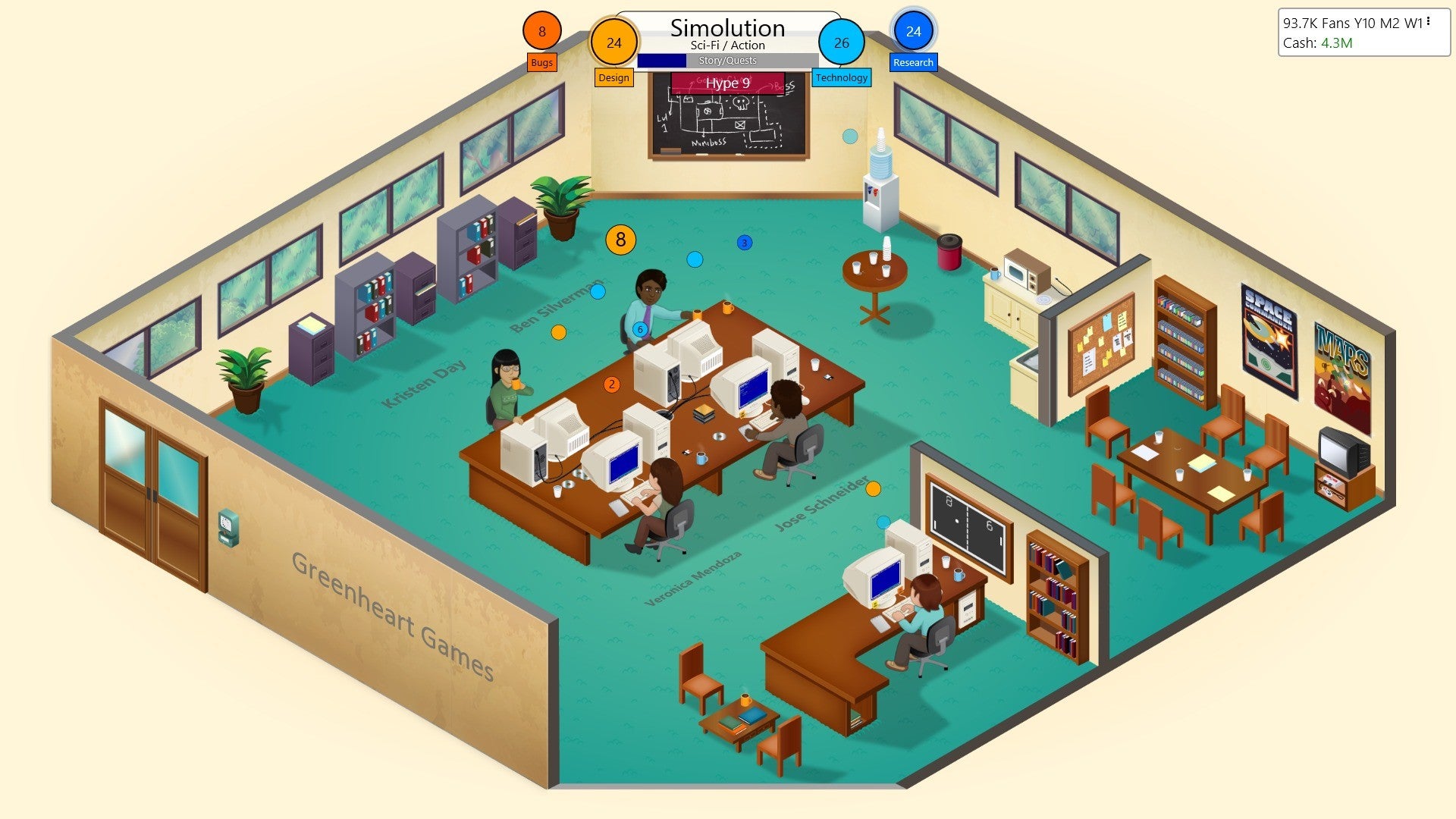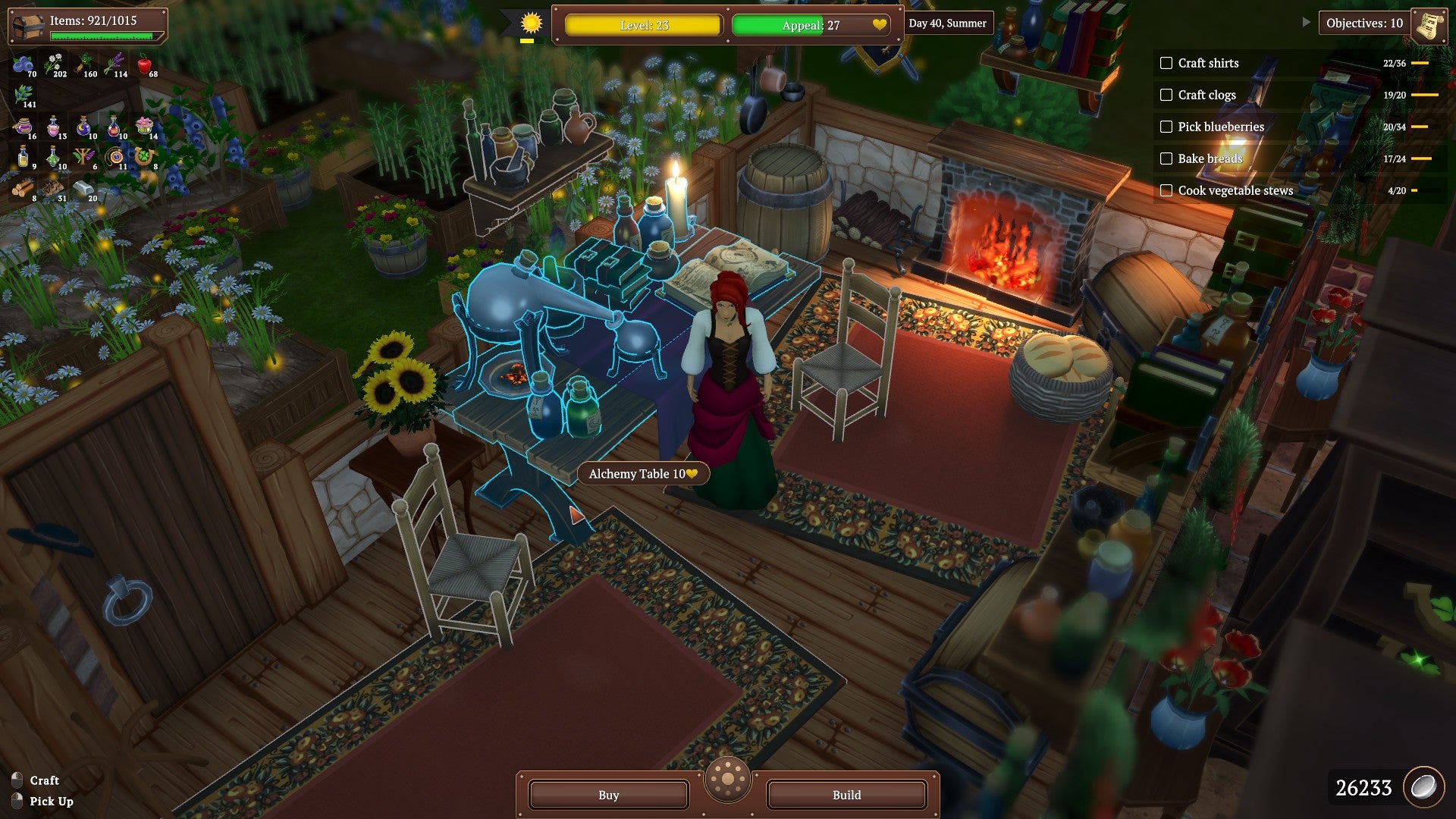Fresh meals are just one of six item categories you can sell in Winkeltje, but I don’t need to worry about the rest. Over a few in-game days, your store starts to specialise in the goods you stock, so customers will visit expecting to find those same items. When you enter the Hovel, you’re greeted with the toasty warmth of the oven as the scent of baking dough drifts through the air. You won’t see us preparing potions or crafting clothes, no sir. For that, you’ll have to go elsewhere. My time with Winkeltje has helped me realise that my usual go-to management game, Game Dev Tycoon, sorely lacks a similar system. My dev team, Finite Ward, could spend years working on a string of action FPS games, but they won’t gain experience in that genre. Instead, they must constantly shift focus to meet the demands of the market in a way that doesn’t really make sense. You’d think a sequel to the smash hit Call Of Honour 4: More War would be an easy sell, but that couldn’t be further from the truth. First-person shooters grow stale, and the audience may crave a casual pet simulation on mobile. I appreciate both genres, but I would never expect Treyarch to drop Call Of Duty to work on Tamagotchi or Nintendogs. It’s safe to say the world of Game Dev Tycoon often leaves me confused. In fact, it doesn’t feel like a world at all. It’s like you’re the only dev team in existence, desperately juggling every genre to keep the market happy while trying not to crumble from the chaos. It gives you less freedom when choosing your next project, and things quickly grow stale from there. Thankfully, Winkeltje’s specialisation system helps it feel fresh. Hefford’s Hovel focuses on ready meals over clothes, potions, weapons, and the rest, which implies that there are other stores filling those niches. While I toil over the oven to produce fresh loaves, there must be a local tailor making fresh loafers. After all, every customer who strolls into the Hovel wears shoes. They’re all dressed to the nines, and clothes don’t just appear out of thin air. So, I’m just one of many Winkeltjes (I recently discovered that Winkeltje is the Dutch word for ‘little shop’), each of us specialising in our own array of goods. It’s safe to assume that, somewhere in town, there’s a blacksmith forging weapons for the local guard. Likewise, there’s probably an alchemist plopping plants into potions while musing at the big boats that go past as they gaze out of the window. It must be a bustling trade hub, even if the simulation doesn’t actually extend that far. Winkeltje: The Little Shop might focus on your own store, but its specialisation system makes you feel part of something much larger. A bustling market, filled with people hopping between the local stores to do their errands. Maybe there’s even a park, where Jans and Klaas remark over the similarities between their identical hats while Margaretha and Emmelina wonder which potions they should purchase for their next adventure. But, while it lets my imagination run wild with worldbuilding, Winkeltje also keeps things delightfully simple. Hefford’s Hovel might not sell everything you need, but they make a truly luxurious loaf.

